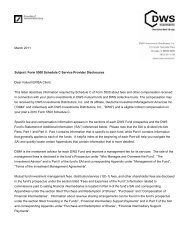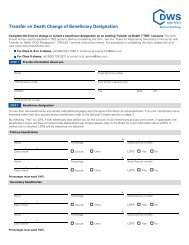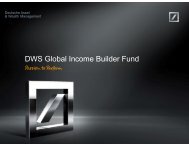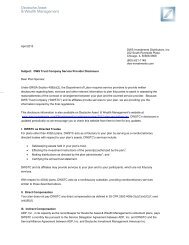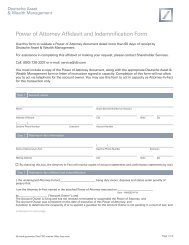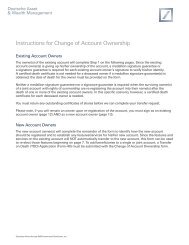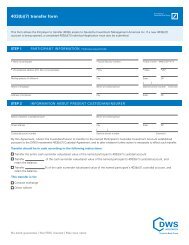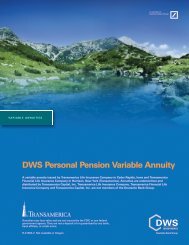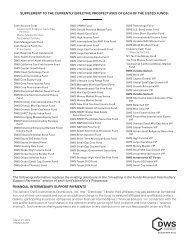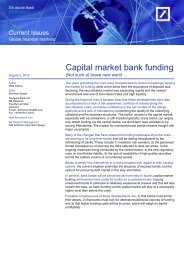Presentation DWS Floating Rate Fund - DWS Investments
Presentation DWS Floating Rate Fund - DWS Investments
Presentation DWS Floating Rate Fund - DWS Investments
You also want an ePaper? Increase the reach of your titles
YUMPU automatically turns print PDFs into web optimized ePapers that Google loves.
What are floating-rate loans<br />
Characteristics<br />
— <strong>Floating</strong>-rate loans, also referred to as bank loans, leveraged loans or syndicated loans, are<br />
loans with floating-rate coupons that are generally senior secured debt of<br />
below-investment-grade corporate issuers<br />
— Coupons or income are tied to a variable rate, most commonly the London Interbank<br />
Offered <strong>Rate</strong> (LIBOR) and generally reset every 30-90 days<br />
— <strong>Floating</strong>-rate loans are most often secured assets that can be transferred to debt holders in case<br />
of default, providing potential downside protection<br />
Benefits of floating-rate loans<br />
— Historically, i floating-rate t loans have experienced lower default rates and higher h recovery rates<br />
than that of traditional non-investment-grade bonds<br />
— More structural protection (collateral and maintenance covenants) than traditional<br />
non-investment-grade bonds<br />
— <strong>Floating</strong>-rate coupon potentially leads to less interest-rate sensitivity than<br />
traditional bonds<br />
LIBOR, or the London Interbank Offered <strong>Rate</strong>, is a widely used benchmark for short-term term taxable interest rates. Coupon is the interest rate, expressed as an annual<br />
percentage of face value, which a bond issuer promises to pay until maturity.<br />
Deutsche Asset<br />
& Wealth Management Investment products: No bank guarantee I Not FDIC insured I May lose value 30





